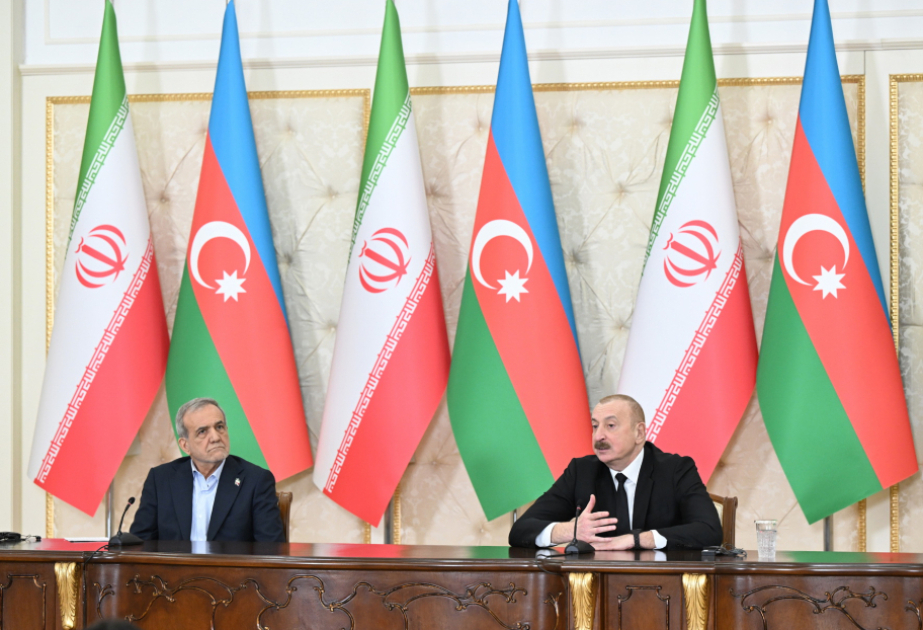
The 12-day Israel-Iran war revealed new vulnerabilities in the Islamic Republic and increased tensions between Iran and its neighbor, Azerbaijan.
In the aftermath of the strategic setback to Iranian nuclear and military facilities, Iran’s conservative political and security establishment began shifting focus toward perceived “close enemies” said to be complicit in the Israeli attacks. Among the primary targets of this narrative has been Iran’s northern neighbor, Azerbaijan, which Iranian state-run media and channels affiliated with the Islamic Revolutionary Guard Corps (IRGC) accused of providing “intelligence support to Israel” during the strikes on nuclear, military, and civilian sites.
While Azerbaijani officials categorically denied any involvement in Israeli military operations and the Iranian government did not present concrete evidence supporting its claims, the media campaign renewed tensions between Tehran and Baku, undermining a period of cautious diplomatic stability that had followed earlier disputes over Armenia and other issues. Indeed, the Iranian criticism of a growing Azerbaijan-Israel alliance is not a new phenomenon and Azerbaijan’s ties with Israel have long been a source of discontent in Azerbaijan-Iran relations.
Since 2021, the IRGC’s top command has threatened Azerbaijan over its relations with Israel by amassing large number of troops and heavy weaponry near the Azerbaijan border. Undeterred, Azerbaijan has deepened security ties with Israel, which is now its top military supplier. Israel’s long-term provision of arms and other sophisticated defense technology contributed to Azerbaijan’s victory over Armenia in a 44-day war in the Karabakh region in 2023. As a result, Azerbaijan regained control over more territory and strengthened ties with both Israel and Turkey, while Iran largely remained a bystander.
Nevertheless, Iran has sought to rekindle relations with its northern neighbor. Iranian President Masoud Pezeshkian made an official visit to Baku in April 2025, which resulted in the signing of more than 50 agreements enhancing cooperation in trade, transport, media, and cultural fields. The visit was also an attempt by Iran to reposition itself amid its rivals Turkey and Israel and to establish a long-term presence near its northern borders.
But the war with Israel exacerbated the old feud between the two states. The accusations of Azerbaijani complicity intensified when Iran’s Ambassador to Armenia, Mehdi Sobhani, claimed that Iranian intelligence had confirmed that several drones had entered Iranian airspace from Azerbaijan. President Pezeshkian also called for a probe into reports suggesting that Israel used Azerbaijani airspace to hit Iranian targets.
The issue was presumably raised when Pezeshkian visited Azerbaijan again on July 4 to attend the summit of the Organization of Economic Cooperation, a grouping of Central Asian states plus Iran, Turkey, Pakistan and Afghanistan. There Pezeshkian again met Azerbaijani President Ilham Aliyev, discussions that the Iranian leader described as “productive and positive.” However, Iran’s conservative elite harshly criticized the trip amid reports of Azerbaijan’s “assistance to Israel.”
During Israel’s recent campaign against Iran, Azerbaijan maintained a publicly neutral position despite the Israeli bombing of cities with majority ethnic Azeri populations including Tabriz and Ardabil as well as the Iranian capital, Tehran. The Israeli strikes angered many in Azerbaijan and led to a certain level of criticism of Israeli actions in local media. But Azerbaijan’s partnership with Israel appears to have remained solid as Baku continues to try to mediate between Israel, Turkey and post-Assad Syria in a way that has deepened Iranian unease and isolation.
On July 12, Syrian interim leader Ahmad al-Sharaa arrived in Azerbaijan in a historic move—the first direct talks between Syrian and Azerbaijani leadership. While the official agenda was not disclosed, Israeli diplomatic sources said that Israeli and Syrian officials also held a private meeting on the sidelines of the Aliyev–al–Sharaa summit.
These reports suggest that Baku is playing an increasingly active role in trying to bring about a reconciliation between Syria and Israel that would fall short of U.S. goals to include Syria in the Abraham Accords but could resolve border disputes and lead to a withdrawal of Israeli forces from southern Syria. (Those efforts suffered a severe blow when Israel bombed Damascus on July 16, allegedly to support embattled Syrian Druze.) Meanwhile, reports have multiplied that Azerbaijan will formally join the Abraham Accords, a seemingly redundant move given existing Israeli-Azerbaijani ties. Unsurprisingly, IRGC-affiliated media outlets branded the latest diplomacy as a “Salafi-Zionist-Azerbaijani conspiracy” aimed at further undermining Tehran’s regional role.
Indeed, the Azerbaijan–Israel strategic axis and the budding Azerbaijan–Turkey–Syria dynamic have only intensified Iranian anxieties. For Tehran, these diplomatic realignments are perceived as tangible steps toward encirclement. The growing fear of geopolitical isolation likely explains the recent surge in anti-Azerbaijani rhetoric across Iranian state media, as the Islamic Republic seeks to maintain the status quo along its borders and resist the formation of any political-military blocs that could further erode its regional influence after nearly two years of unrelenting Israeli attacks on Iran’s Arab partners and now on Iran itself.
